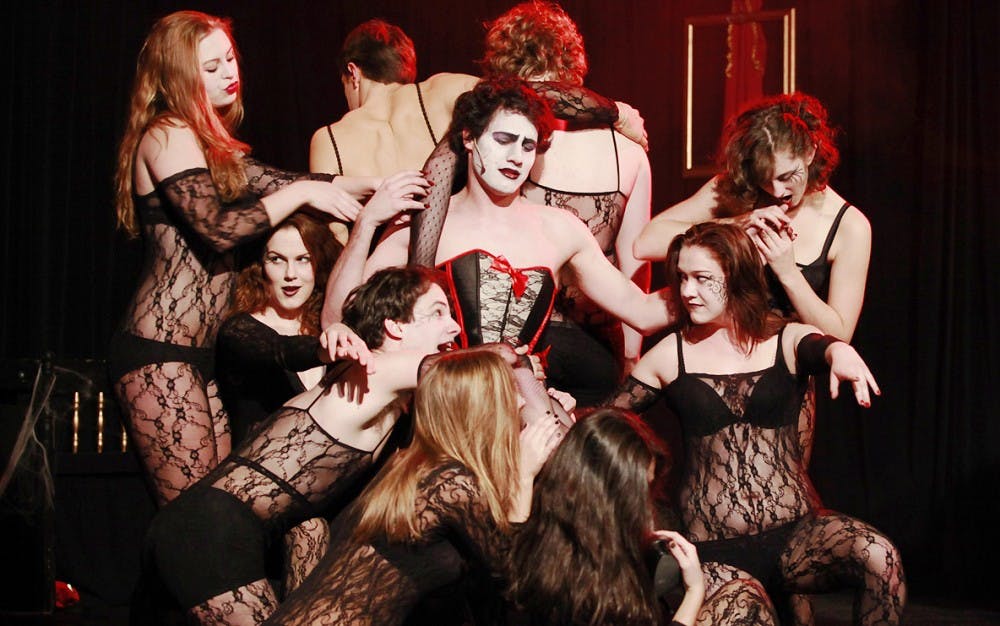“I'm impressed by how adventurous (adaptations) are, and I think they certainly open up the door to a new audience,” Shaffer said. “Making something a musical, or making something set in a contemporary setting, it does draw in more folks.”
Aeris Carter, the founder of Carter Plays for POTS, said that she has seen a shift in acting as well as in the shows chosen to be performed. She said that she has observed a movement away from larger, over-the-top performances and an increased emphasis on straight-forward, organic acting.
“It’s much more naturalistic and much less showy,” Carter said.
As groups have evolved with the rapid transformation of social media since 2010, most theater promotion has moved online, using platforms like Facebook groups and Instagram profiles to publicize upcoming productions.
“This is so millennial of us, but we used to do a lot of printing posters and putting flyers up and stuff, and we don't really do any of that anymore — it's pretty much all digital now,” Toney said. “Now we do a lot of trailer-esque kinds of things, which were not super present five or 10 years ago.”
Shaffer said it’s this introduction of social media use that makes her hopeful for the future of theater marketing. She said in an industry that is constantly competing with television and movies, who hire expert marketers, theater and especially student theater, have to remain up to date in order to stay relevant.
“I think that show posters are still fairly basic-- they sort of conform to the same stylistic guidelines that they always have,” Shaffer said. “Where I'm seeing some improvement is the use of promotional footage. I think that's something that audiences are sort of hungry for. I would be more likely to see a show if I saw really excellent behind-the-scenes rehearsal footage.”
As student theater groups are working to evolve their online presence, they are simultaneously working to embrace their community and grow their audience, which is a trend UNC senior Samantha Yancey, executive director of LAB!, has observed over the past few years.
“Chapel Hill is very much a community that supports going to the arts,” Yancey said. “The community just continues to learn about all of the different theater groups on campus and what they have to offer, and have really come out to support.”
Shaffer said a major part of this community expansion is the inclusion of a more diverse audience, which is something she has noticed theater groups trying to ensure through the works they choose to perform.
“People are making a more genuine effort to attract younger audiences, to attract diverse audiences, to try and break away from this stereotypical but real donor base of old, traditionally white patrons,” Shaffer said. “I've seen a number of theaters, and that sort of goes along with revamping classics, embracing new plays by diverse playwrights, and are actively trying to bring in diverse audiences.”
While societal values and technology may frequently be adapting and developing in the student theater world, Shaffer said what she has consistently seen is a lack of recognition for theater groups' dedication.
To get the day's news and headlines in your inbox each morning, sign up for our email newsletters.
“The amount of work and passion that people put into each production is not, typically, being monetarily valued enough,” Shaffer said. “People are still working like wild and struggling to pay their base bills in this kind of gig economy that the theater kind of slops into.”
But despite changing societal values, evolving technology and lingering under-appreciation, what remains constant is the love and passion that student theater groups have for the art.
“No one's getting class credit, and they're not getting paid, necessarily, to do this — everyone just loves theater, and it's always been that,” Yancey said. “All the work that gets produced is because people are willing to work hard, and really just care about the art.”
Shaffer, who is currently directing a show in Dallas, said that her dedication and love for the craft hasn’t changed in the five years since she graduated from UNC.
“I know from my first show that I did at Chapel Hill, until now, when I'm working down here in Texas, there's still this electricity in the air, and excitement every time you start a new project and the thrill of opening night,” Shaffer said. “The things that keep us coming back again and again have remained the same.”
For Toney, love for the art of student theater isn’t something unique to this decade, it’s something that has persisted since the genesis of student theater on UNC’s campus.
“You could go back even 20, 30, 40 years ago, and you would still see the same passion for creating art and sharing that with the community,” Toney said. “That's what is in our core.”
@Elizabeth_sills
arts@dailytarheel.com



